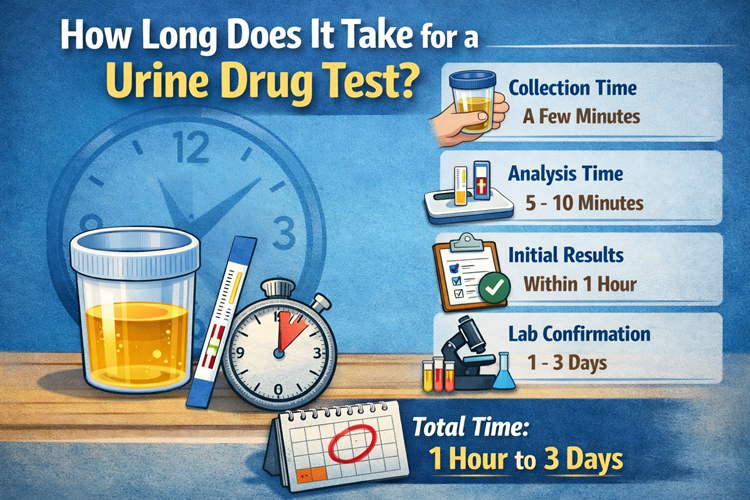Wernicke-Korsakoff syndrome (WKS) is an extreme complication neurological disease which can most probably be associated with chronic alcoholism and acute thiamine deficiency. Although this condition can be avoided and treated easily in the event that it is diagnosed at the early ones, majority of people could not detect the warning signs and complicate the condition to high degree. Early warning signs, the causes and treatment knowing could help people and families make life-saving choice and be on the path of long-term recovery and healthy life.
As a team, we offer evidence-based caring service to alcohol-damaged brain patients who have comorbid mental health issues in Solutions Healthcare in Florida. This source gives you a simple unitersified explanation of the Wernicke-Korsakoff syndrome so that you can make an informed decision in either of you or your beloved.

What is Wernicke-Korsakoff Syndrome?
WernickeKorsakoff syndrome is a two stage neurological disorder which is mainly induced by the lack of thiamine (vitamin B1). It consists of:
- Wericke- acute, acute and onset of the state of the brain and nervous system.
- Korsakoff psychosis is a chronic syndrome that is long term which impairs the memory and the learning of an individual as well as his/her overall cognitive functioning.
These phases are normally concurrent and hence the reason why they are integrated and referred to as Wernicke-Korsakoff syndrome.
Phases of Wernicke-Korsakoff Syndrome
1. Wernicke’s Encephalopathy (Acute Phase)
This is a medical emergency. Without early treatment, there would be long-term brain damage. The triadic symptoms include the following:
- Confusion
- There is a problem of co-ordination (ataxia).
- Failure to move his eyes properly or issues with his vision.
Due to such a rapid development of symptoms, it is vital to treat it in time.
2. Korsakoff’s Psychosis (Chronic Phase)
Wernicke encephalopathy unless treated in time, can lead to Korsakoff psychosis which is typified by:
- Issues with formation of new memories.
- Severe memory loss
- Confabulation (making up the blank spaces within the memory with invented stories)
- Learning challenges
This stage may take months or be permanent in case the condition is unattended.
100% Confidential Support is Available 24/7
No matter what you’re going through, you’re not alone. Our dedicated team is here to provide a safe, judgment-free space where you can talk openly and honestly. Whether you need emotional support, resources, or just someone to listen.
We’re here for you—completely confidential and always respectful of your privacy. Call us today!
Symptoms of Wernicke-Korsakoff Syndrome
Symptoms of thiamine deficiency differ according to the disease stage and the severity of the disorder.Wernicke-Korsakoff has the following most significant symptoms:
Wernicke’s Encephalopathy Symptoms
- Confusion or disorientation
- Poor muscle coordination
- Tremors or unsteady gait
- Double vision or involuntary eye movements
- Drooping eyelids
- Low body temperature or blood pressure
- Loss of direction or confusion.
- Poor muscle coordination
- Tremors or unsteady gait
- Vision losses or spasms, caused by drugs.
- Drooping eyelids
- Hypothermia or hypotension.
Korsakoff’s Psychosis Symptoms
- Profound memory loss
- Failure to acquire new knowledge.
- Hallucinations
- Personality changes
- Confabulation (intentional lying, i.e. lying on purpose)
Alcohol addicts might ignore such symptoms as they can be mistaken with the intoxication or withdrawal symptoms. This further increases the importance of early diagnosis.
Contact Solutions Healthcare
Battling with Drug and Alcohol Addition? Remember, you are not alone and we are here to help you!
Causes of Wernicke-Korsakoff Syndrome
WKS is primarily brought about by deficiency of thiamine rendering the brain incapable of utilizing the energy. The impairment of the brain cells in the discharge of their functions swiftly results in the development of the neurological damage.
Common Causes Include:
- Abuse of alcohol (long-term most common cause).
Alcohol disrupts the absorption of thiamine, storage, and usage.
- Malabsorption or malnutrition.
Individuals having eating disorders, digestive disorders or chronic diseases may be at risk.
- Complications in bariatric surgery.
Absorption may reduce to cause serious vitamin deficiencies.
- Chronic vomiting
Viewed in diseases like hyperemesis gravidarum.
- HIV/AIDS or chronic illness
Thiamine can be depleted by an increase in metabolism or by inadequate intake.
The reduction in the level of thiamine to a very low level exposes the brain to alcohol-related brain damage and unless immediate treatment is administered, it may cause the consequences of brain damage throughout the whole life.
Diagnosis of Wernicke-Korsakoff Syndrome
The diagnosis of WKS may be complicated because the symptoms are similar to other neurological or mental disorders. The providers normally use:
1. Comprehensive Medical History
Assessment of nutrition history and alcohol use.
2. Physical and Neurological Examination
Eye movement, coordination, reflex and behavior assessment.
3. Blood Tests
Monitoring thiamine, liver and electrolyte status.
4. Brain Imaging (MRI or CT scan)
To identify structural alteredness or atrophy of WKS.
Since the early treatment is effective in reducing the condition, doctors usually start the treatment of the Wernicke-Korsakoff syndrome as soon as there is an emergence of symptoms or a predisposing condition regardless of whether the laboratory results are back.
Treatment for Wernicke-Korsakoff Syndrome
Treatment of the WernickeKorsakoff syndrome is aimed at the quick thiamine intake replacement, medical stabilization and further rehabilitation.
1. High-Dose Thiamine Therapy
The initial treatment is urgent IV thiamine to replenish the body with vitamins and prevent additional brain damage.
2. Alcohol Withdrawal Management
In case of alcohol use disorder, alcohol detox is safely stabilized by medically guided detox.
3. Nutritional Rehabilitation
Then drying the body and the brain by feeding them with the necessary vitamins and nutrients in order to revive their functionality.
4. Cognitive and Behavioral Therapy
To assist people in restoring memory, enhancing cognition and learning recovery.
5. Long-Term Support Programs
Therapy, medicine management, and relapse prevention planning in order to avoid relapse are considered as care.
In Solutions Healthcare Florida our staff is an integrated care approach to alcohol abuse in combination with neurological complications that allow our clients to stabilize and achieve cognitive clarity and long term wellness.

100% Confidential Support is Available 24/7
No matter what you’re going through, you’re not alone. Our dedicated team is here to provide a safe, judgment-free space where you can talk openly and honestly. Whether you need emotional support, resources, or just someone to listen.
We’re here for you—completely confidential and always respectful of your privacy. Call us today!
Conclusion
Wernicke -Korsakoff syndrome is a dangerous yet preventable neurological disorder that is the product of thiamine deficiency usually associated with prolonged alcoholism. Early diagnosis and treatment can do a lot to it and reduce the possibility of the irreversible damage of the brain. Professional assistance in case of you or someone you love fails to handle alcohol abuse, you need to seek some professional assistance in case of any signs and difficulties.
Solutions Healthcare of Florida will engage in the provision of full medical and mental care facilities to patients with alcohol induced brain damages and nutritional complication. Care, advice and treatment regime can enable one to heal.
FAQs
Q. What is the cause of Wernicke-Korsakoff syndrome?
This is mainly caused by extreme depletion of the thiamine, which may be caused by chronic alcoholism, malnutrition, digestive disorders or some medical conditions.
Q. What are the symptoms of Wernicke’s encephalopathy?
The typical symptoms are confusion, lack of coordination, tremors, vision doubling, abnormal movements of the eye, and low body temperature.
Q. How do you treat Wernicke’s syndrome?
Initial treatment involves high dose IV thiamine, nutritional support and alcohol withdrawal treatment (when necessary) and long-term therapy.
Q. What is the prognosis for Wernicke’s disease?
Symptoms can be treated with early treatment, and they can improve in a few days. The later the treatment is the greater the chance of permanent memory loss or chronic Korsakoff psychosis.
Q. What are 5 signs of Korsakoff’s syndrome?
There are five typical symptoms, namely, a severe memory loss, confabulation, inability to learn new information, personality change, and hallucinations.






















